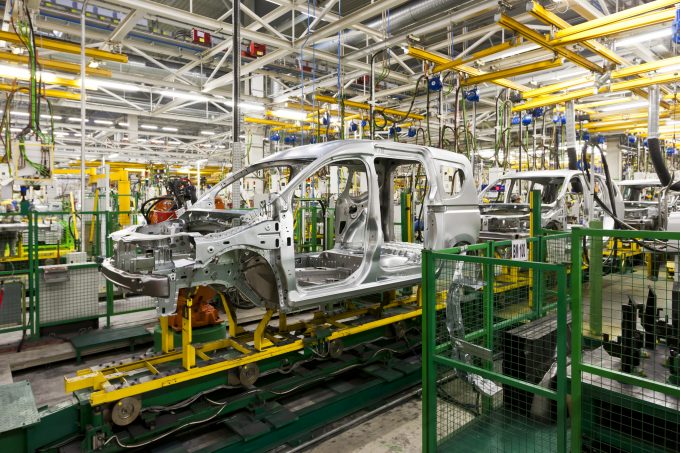AI series: Be careful, or your AI might hallucinate
The final article in our series on AI in logistics examines how companies can avoid ...
GM: RAISING THE ROOF GGM: IN FULL THROTTLE GZIM: MAERSK BOOST KNIN: READ-ACROSSMAERSK: NOT ENOUGHMAERSK: GUIDANCE UPGRADEZIM: ROLLERCOASTERCAT: HEAVY DUTYMAERSK: CATCHING UP PG: DESTOCKING PATTERNSPG: HEALTH CHECKWTC: THE FALLGXO: DEFENSIVE FWRD: RALLYING ON TAKEOVER TALKODFL: STEADY YIELDVW: NEW MODEL NEEDEDWTC: TAKING PROFIT
GM: RAISING THE ROOF GGM: IN FULL THROTTLE GZIM: MAERSK BOOST KNIN: READ-ACROSSMAERSK: NOT ENOUGHMAERSK: GUIDANCE UPGRADEZIM: ROLLERCOASTERCAT: HEAVY DUTYMAERSK: CATCHING UP PG: DESTOCKING PATTERNSPG: HEALTH CHECKWTC: THE FALLGXO: DEFENSIVE FWRD: RALLYING ON TAKEOVER TALKODFL: STEADY YIELDVW: NEW MODEL NEEDEDWTC: TAKING PROFIT

Largescale changes have shifted the car industry in the past year – but there is less clarity over what the next decade holds, and the impact on the supply chain.
Ti’s Automotive Supply Chain and Logistics report suggests that while artificial intelligence (AI) and the demise of diesel tend to be the two subjects that hit the headlines, a switch in materials used for making cars may be just as important.
“Less talked of than autonomous guidance or electric propulsion, is the use of different materials for the ‘frame’ of the car,” it said.
“Certain manufacturers, such as Jaguar, already use aluminium construction, although most vehicle manufacturers (VMs) at present use steel alloy to deliver a lighter vehicle.”
The report claims a renewed interest in power-weight ratios will “amplify” the need for materials with better performance than steel, causing changes to automotive logistics. In particular, it notes the growing of role carbon fibre.
“The consequence for both in-plant logistics and the supply chain are likely to be substantial,” it says. “Carbon fibre fabrication facilities will have to be created, feeding assemblies into the main assembly plant.”
As a result, the report suggests, changes in scheduling may impact the supply chain, and it notes that carbon fibre is “difficult to work with”.
Alongside changes in body materials, Ti says shifting to all-electric propulsion would see traditional engine plants become redundant.
“These are presently major facilities often located next to an assembly line and characterised by extensive, capital-intensive metal-forming equipment,” it notes. “In contrast, electric propulsion will be battery-pack dominated, which while complex, are more straightforward to assemble than combustion engines.”
Ti believes this will result in the major focus of logistics operations shifting towards management of this area of production and the transport of battery packs.
You can buy the report here.
Comment on this article
jyoti sharma
June 13, 2018 at 10:09 amThe evolution and future success of the retail industry are highly dependent on how retailers choose to implement new technologies in their strategies. Thanks for sharing.